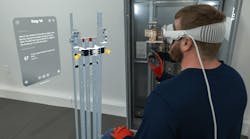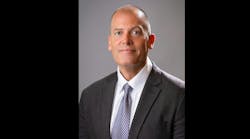Just two weeks before downtown St. Louis was overrun with basketball fans attending the NCAA Final Four basketball tournament, the St. Louis Electrical Board enjoyed a healthy crowd of its own with more than 2,000 attendees at its Electrical Expo trade show at the Edward R. Jones Dome at America's Center convention/arena complex in downtown St. Louis, March 22-23.
At the kick-off luncheon on March 22, Howard Wall, assistant vice president and regional economic advisor for the St. Louis Federal Reserve Bank gave an overview of economic conditions in the U.S. economy and the St. Louis metropolitan area.
Wall said St. Louis felt the recent recession more than many metropolitan areas because manufacturing accounts for so much of the local economy. Because of its industrial orientation, St. Louis fell into the recession faster than many cities and is taking longer to recover, he said.
Nationally, job losses were worst in the manufacturing sector, which accounts for 25 percent of the U.S. gross domestic product (GDP). Statistically speaking, the 2001-2002 recession was mild compared to other recessions, he said, noting that, “The recession was really all about manufacturing.”
Another luncheon speaker, Steven Johnson, focused on the challenges and opportunities facing St. Louis-based firms in growing the local economy. Johnson is senior vice president for economic development, the St. Louis Regional Chamber and Growth Association (RCGA), an organization that promotes economic growth for the 16 counties that make up the St. Louis metropolitan area.
He said many metropolitan areas concentrate on luring new companies from around the United States into their communities, but over the long-term, increased hiring by native companies will add more to the local economy.
Johnson added that every city loves to promote corporate relocations such as a new Fortune 500 company headquarters or new factories that employ hundreds of workers. But he says, “You cannot recruit yourself to greatness.”








